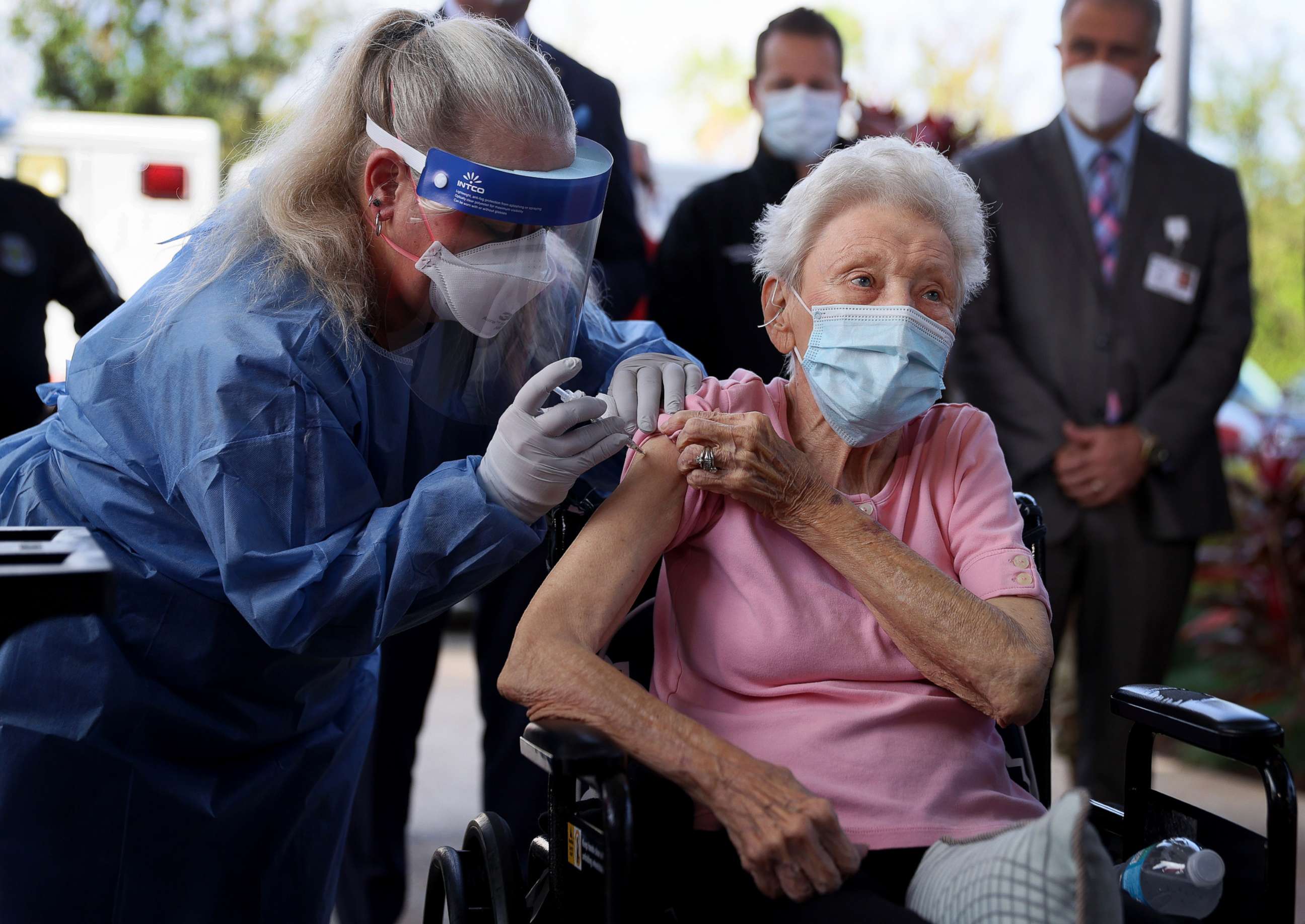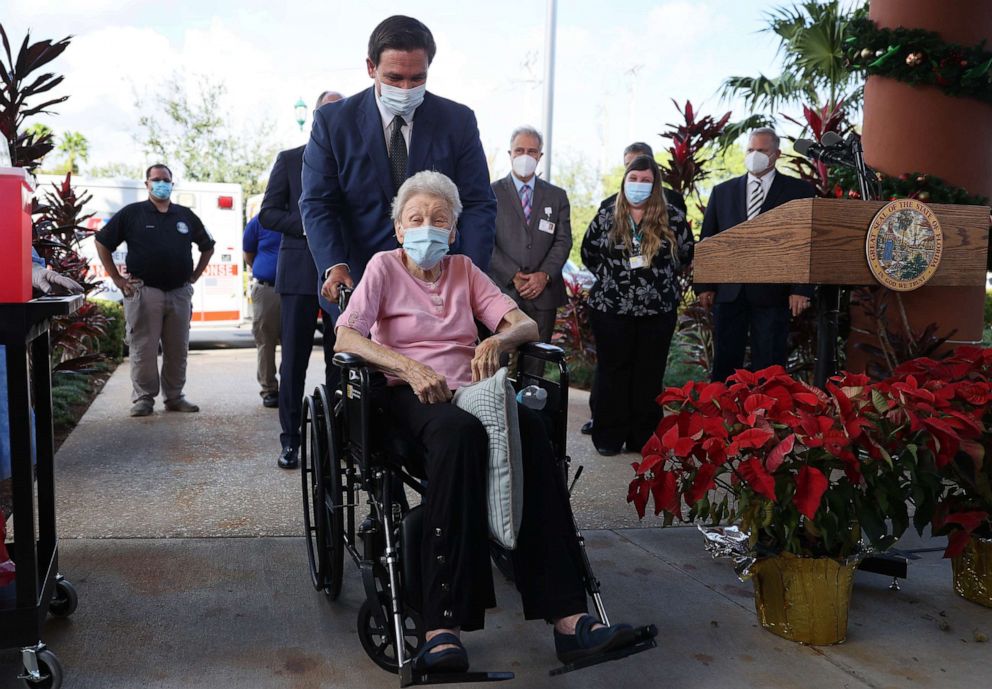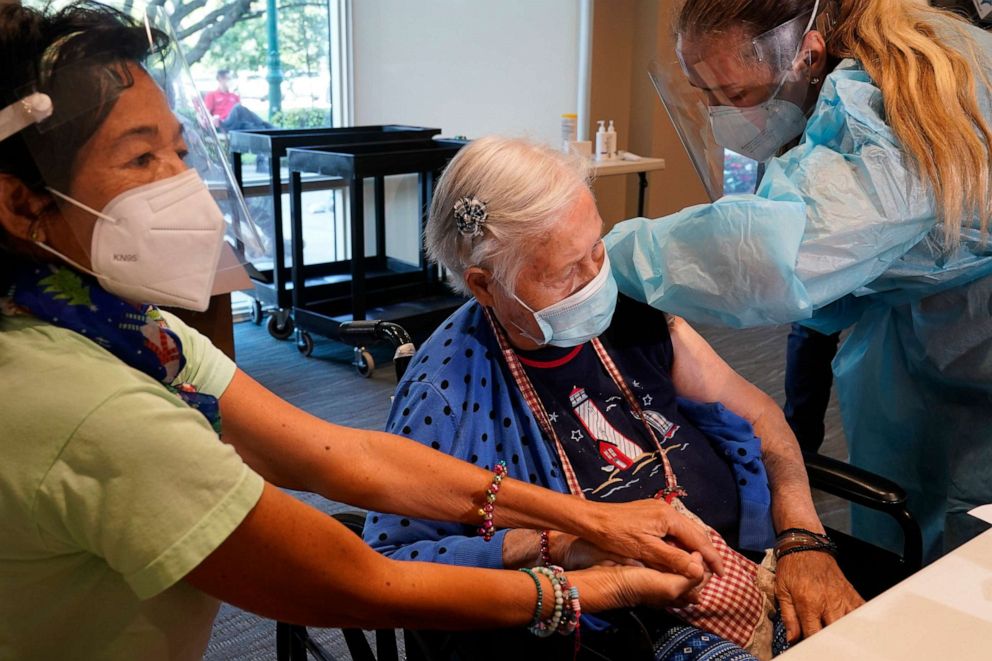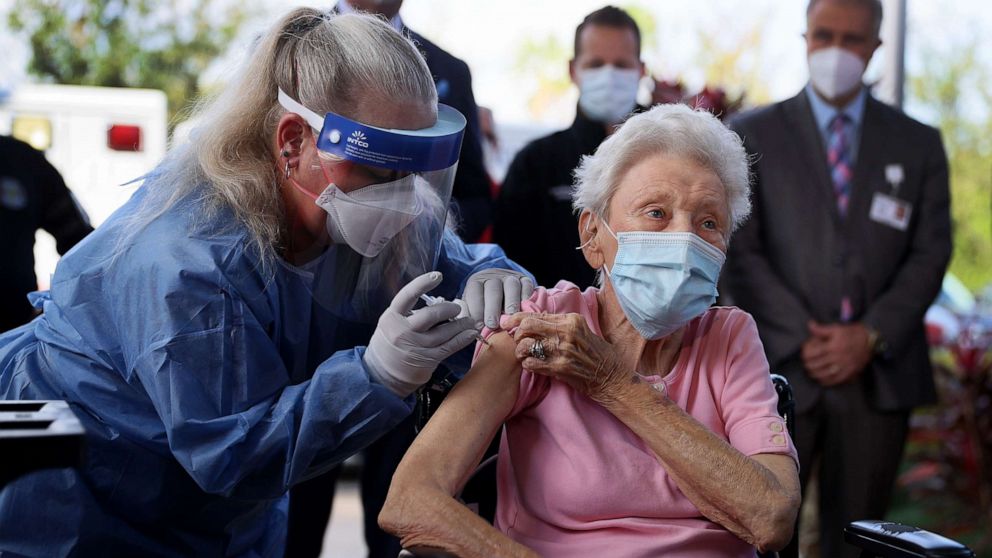Even as nursing homes start receiving vaccine, vulnerable residents face hurdles
For many of the nation's elderly nursing home residents, the arrival Wednesday of the coronavirus vaccine represents the first glimmer of hope following a long, painful year -- but experts say significant hurdles still stand in the way of inoculating the entire vulnerable population.
Initial supplies will not be enough to protect all of the 3 million people living in various types of congregate care and the 21 million health care professionals who serve them across the country. And despite the decision by the Centers for Disease Control and Prevention (CDC) to place congregate care residents in the first phase of vaccine distribution, most nursing homes in the U.S. are only in the very earliest stages of the vaccination process.
While Florida and West Virginia began distributing vaccines to nursing homes on Wednesday, most of the country will rely on CVS and Walgreens to administer the vaccine in nursing homes, and they have only just started to notify recipients how the distribution will unfold.
"We're just waiting," said Rodney McBride, vice president of health services at John Knox Village Care Center, an independent 430-bed nursing facility located in a Kansas City suburb. "CVS told us that we would be hearing back from them within a couple of weeks on when we can get the vaccine."
Eric Carlson, a long-term care expert with the advocacy group Justice in Aging, said he believes that the coronavirus vaccine is the only way to return to a more normal and open life.
"More than virtually any other group, nursing facility residents have been battered by this year of COVID," Carlson said. "The deaths and illnesses have been devastating, and even the best-case scenario has seen residents isolated from family and friends for months and months."

But for long-term facilities, one of the biggest challenges has been getting the necessary permissions from families to be able to administer the vaccine to residents.
"The vaccine doesn't require a physician order for CVS or Walgreens to administer it," said Dr. Mark Gloth, chief medical officer for ProMedica Senior Care. "But it absolutely requires consent."
Sometimes the residents themselves can provide that approval, like in case of Cynthia Mayes, a resident of the ProMedica Senior Care facility in Palm Harbor, Florida.
"You are stupid not to get it," Mayes, 70, said of the vaccine. "This is a bad virus."
But in other cases, where infirm residents are too sick to make decisions about their care, that consent falls to relatives.
In the Palm Harbor facility, more than 80% of residents and staff have submitted agreements to be vaccinated -- a figure consistent with the number of Americans who said they would want the vaccine at some point, according to an ABC News/Ipsos poll. But some nursing homes are encountering resistance from relatives of residents.
Jenn Hubbert, a real estate agent in Florida, is still deciding whether to allow her mother's nursing home to administer the vaccine.
"My main concern is the side effects," Hubbert told ABC News. "There is so much that we don't know, and I'm concerned for my mother's health."

After conducting an employee survey at Aviva, a long-term care facility in Sarasota, Florida, Vice President of Health Care Services Teresa Martin found that only 39% of the staff were willing to get vaccinated.
"They are worried about the possible side effects," Martin said. "They are scared."
As coronavirus infection numbers skyrocket around the country, experts say the need to vaccinate the population could not be more desperate. At the Island Nursing Home in Deer Isle, Maine, administrator Matthew Trombley said in the past few days, he has been realizing his worst nightmare: Nearly all of his staff were infected with COVID-19, along with most of the residents.
With 90 positive cases and four deaths at the remote facility, Trombley, a retired EMT, switched his suit and tie for protective equipment and gloves.

"I had prepared for quite literally every scenario except this one," Trombley told ABC News. "We had to get creative and I had to step into the role of a nurse."
And still, Trombley said, he is working overtime to persuade some relatives to trust the vaccine.
"We can't force anyone to get the vaccine," said Trombley. "And some families are very skeptical."
Dr. Litjen Tan, chief strategy officer of the Immunization Action Coalition, told ABC News that education is critical to achieving a high rate of vaccinated residents and staff in nursing homes.
"We need to emphasize the deadly nature of outbreaks in long-term care facilities, and if we do not see good vaccination coverage rates in the residents and staff, we will not be able to reduce this mortality and morbidity," Tan said. "We need to emphasize to the staff and residents and their family the incredible effort that has gone into ensuring [the vaccine] is safe and efficacious."
Trombley, the Island Nursing Home administrator, said he will be the first to receive the vaccine at his facility. He hopes it will make the residents more comfortable and willing to be vaccinated.
"We are all a family, and they trust me," said Trombley. "And some have already told me, 'Well, Matthew, if you're OK with taking it, we're going to be taking it.'"




